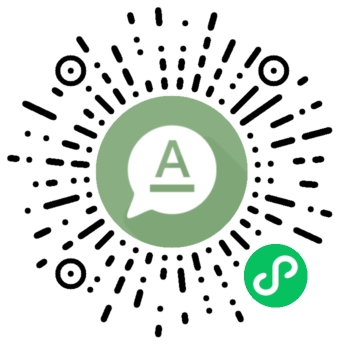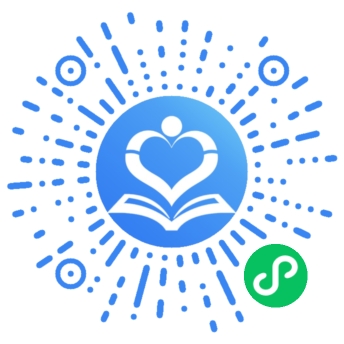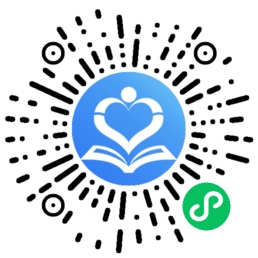中共党史专业介绍
中国共产党历史专业属于法学门类,政治学一级学科,该专业主要研究中国共产党的历史发展、理论政策与实践,探索中国共产党领导中国革命、建设、改革和党的建设的历史经验教训,揭示中国共产党执政规律、社会主义建设规律、人类社会发展规律。
英语单词分类 轻松记单词
please
英[pliːz] 美[pliːz]
"please pay attention"
"These colors please the senses"
"a pleasing sensation"
"he could do many things if he pleased"
"The waiters around her aim to please"
1.(表示有礼貌地请求或邀请)请,烦劳
You sayplease when you are politely asking or inviting someone to do something.
please是什么意思
e.g. Can you help usplease?...
能请你帮帮我们吗?
e.g. Would youplease open the door?...
请你开一下门好吗?
2.(表示客气地接受)谢谢,行
You sayplease when you are accepting something politely.
e.g. 'Tea?' — 'Yes,please.'...
“要茶吗?”——“好的,谢谢。”
e.g. 'You want an apple with your cheese?' — 'please.'
“要不要加个苹果和奶酪一起吃?”——“行啊。”
3.(表示要求对方停止做某事或别再开口)请别,请不必
You can sayplease to indicate that you want someone to stop doing something or stop speaking. You would say this if, for example, what they are doing or saying makes you angry or upset.
e.g. please, Mary, this is all so unnecessary...
玛丽,请不要这样,这完全没必要。
e.g. Isabella.please. I don't have time for this.
伊莎贝拉,别再说了,我没有时间听这个。
4.(用于吸引对方注意、特别是儿童对老师或其他成人时)请问,对不起
You can sayplease in order to attract someone's attention politely. Children in particular say 'please ' to attract the attention of a teacher or other adult.
e.g. please sir, can we have some more?...
请问,先生,我们能再要一些吗?
e.g. please, Miss Smith, a moment.
对不起,史密斯小姐,能耽误你一会儿吗?
5.使高兴;使喜欢;使满意
If someone or somethingpleases you, they make you feel happy and satisfied.
e.g. More than anything, I want toplease you...
最重要的是,我想让你高兴。
e.g. Much of the food pleases rather than excites...
这些食物中许多只是让人满意,但并不让人兴奋。
6.愿意;喜欢;认为合适
You useplease in expressions such asas she pleases ,whatever you please, andanything he pleases to indicate that someone can do or have whatever they want.
please
e.g. Women should be free to dress and act as theyplease...
女性应该有穿衣和行动的自由。
e.g. He does whatever he pleases...
他想干什么就干什么。
7.(用于强调)极尽…,…的程度怎么说都不为过
You can useas you please in expressions such asbold as you please orcasually as you please orcharming as you please in order to emphasize what you are saying.
e.g. He walked by my table and, casually as youplease, picked up my address book...
他走到我的桌旁,非常随意地拿起了我的通讯录。
e.g. Bold as youplease, she grabbed me by the sleeve.
她真够大胆的,竟抓住了我的衣袖。
8.(表示很有礼貌和正式地吸引对方注意或提出请求)对不起,烦请
If you please is sometimes used as a very polite and formal way of attracting someone's attention or of asking them to do something.
please
e.g. Ladies and gentlemen, if youplease. Miss Taylor's going to play for us...
女士们,先生们,烦请泰勒小姐为我们表演。
e.g. Sir Harry! Stop, if youplease!
哈里爵士!对不起,请等一下!
9.(表示惊讶、恼怒或难以置信)竟然,你说怪不怪
You can sayif you please to indicate that a situation surprises or annoys you, or is difficult to believe.
e.g. She was pretty unforthcoming. Made Sally wait till she'd cooked Selby's lunch, if youplease.
她爱搭不理地把萨莉晾在一边,直到她为塞尔比做好午饭,你说怪不怪。
10.(无礼地表示不在意或不关心)请便,随你的便
You say 'please yourself ' to indicate in a rather rude way that you do not mind or care whether the person you are talking to does a particular thing or not.
e.g. 'Do you mind if I wait?' I asked. Melanie shrugged: 'please yourself.'
我问道:“要不我等会儿吧?”梅拉妮耸耸肩说:“随你便。”
11. please God -> see God
1. 拜托:固然说我们不是特别熟,不外我还是有件事拜托(please)你. 最近玄午门四周的家猪是越来越多了,拱来拱去就算了居然还随地大小便!搞得我们乞讨人卫生条件下降,快乐指数狂跌啊,麻烦你去杀20只家猪,还我们一个洁净的空间!
please sit down.
请坐。
Two coffees, please.
请来两杯咖啡。
Quiet please!
请安静!
please could I leave early today?
请问,我今天早走一会儿行吗?
please don't leave me here alone.
请千万别把我一个人留在这儿。
please, please don't forget.
请务必务必不要忘记呀。
please, I don't understand what I have to do.
我的确不明白我该做什么。
'u2018Would you like some help? 'u2019 'u2018Yes, please. 'u2019
“您需要帮忙吗?”“是的。太感谢了。”
'u2018Coffee? 'u2019 'u2018please. 'u2019
“要咖啡吗?”“那太好了。”
Children, please! I'm trying to work.
孩子们,别闹了!我在干活哪。
John! please!
约翰!老实点儿吧!
Oh, please! You cannot be serious.
喔,得了吧!你准是在打哈哈。
Can you help us please?...
能请你帮帮我们吗?
Would you please open the door?...
请你开一下门好吗?
'Tea?' 'u2014 'Yes, please.'...
“要茶吗?”——“好的,谢谢。”
'You want an apple with your cheese?' 'u2014 'please.'
“要不要加个苹果和奶酪一起吃?”——“行啊。”
please, Mary, this is all so unnecessary...
玛丽,请不要这样,这完全没必要。
Isabella. please. I don't have time for this.
伊莎贝拉,别再说了,我没有时间听这个。
please sir, can we have some more?...
请问,先生,我们能再要一些吗?
please, Miss Smith, a moment.
对不起,史密斯小姐,能耽误你一会儿吗?
More than anything, I want to please you...
最重要的是,我想让你高兴。
Much of the food pleases rather than excites...
这些食物中许多只是让人满意,但并不让人兴奋。
Women should be free to dress and act as they please...
女性应该有穿衣和行动的自由。
He does whatever he pleases...
他想干什么就干什么。
He walked by my table and, casually as you please, picked up my address book...
他走到我的桌旁,非常随意地拿起了我的通讯录。
Bold as you please, she grabbed me by the sleeve.
她真够大胆的,竟抓住了我的衣袖。
Ladies and gentlemen, if you please. Miss Taylor's going to play for us...
女士们,先生们,烦请泰勒小姐为我们表演。
Sir Harry! Stop, if you please!
哈里爵士!对不起,请等一下!
She was pretty unforthcoming. Made Sally wait till she'd cooked Selby's lunch, if you please.
她爱搭不理地把萨莉晾在一边,直到她为塞尔比做好午饭,你说怪不怪。
'Do you mind if I wait?' I asked. Melanie shrugged: 'please yourself.'
我问道:“要不我等会儿吧?”梅拉妮耸耸肩说:“随你便。”
That the main object of poetry is to please, seems to me too contemptible.
出自:F. J. Furnivall请求帮助
A:Would youplease do this for me?
您能为我做这个吗?
B:My pleasure.
可以啊!
道歉
please
A:please excuse my careless words.
请原谅我那些无心的话
B:It doesn’t matter at all.
一点也没有关系
外企参观
A:please stop me if you have any question.
有任何问题,请随时叫我停下来。
B:I will.
好的
A:Duck your head as you go through the door there.
经过那儿的门时,请将头放低。
B:Thank you.
谢谢。
误 Close the door please.
正 Close the door, please.
正 please close the door.
析 祈使句里的please若放在句末,须用逗号与其他部分分开; 若放在句首则不用逗号。
误 He is pleasing his father by studying hard.
正 He pleases his father by studying hard.
析 please表示“使高兴”,属静态动词,通常不用于进行体中,应改用现在时态。
很显然,他的话使他们高兴。误 It was clear his words was pleased with them.
正 It was clear his words pleased them.
我们对结果感到高兴。误 We are pleased the result.
正 We are pleased with the result.
析 please作及物动词,意思是“使…高兴”; be pleased with表示“对…感到高兴”。
please wash your hands before you eat.
吃饭前请洗手。
2018河北省卷
Wait a minute,please.
请等一下。
2018吉林省卷
Would youplease give me some advice?
你能给我一些建议吗?
2018绵阳市卷
please give reasons for your recommendation.
请给出你推荐的理由。
2017英语一
please don't approach me.
请不要靠近我。
2015英语二
Dare to be different,please don't smoke!
敢于与众不同,请不要吸烟!
2012英语一
It is the prize-givers' money to do with as theyplease.
这是获奖者的钱,他们可以随意使用。
2014英语一
Men make their own history, but they do not make it just as theyplease.
人类创造了自己的历史,但他们并不随心所欲。
2012英语二
Students are treated like customers to bepleased.
学生被当作顾客来取悦。
2019英语一
Be easilypleased.
很容易高兴。
2016英语二
上一个:brood over
下一个:grievous
四川高考志愿填报方式:1、进入页面;2、修改密码;3、填报须知;4、查看个人基本信息;5、志愿类别选择;6、填写志愿和修改志愿;7、填写或修改志愿结束后,单击页面底部的[保存并提交]按钮,则所填写的志愿数据将得到保存,保存即表示该批次志愿已经提交。
高考成绩一般都会在考后15天左右公布,不过不同省份查询时间有所差别,具体以各省份发布时间为准。并且全国各省份高考成绩公布时间有所不同,不全在同一天,但绝大部分省市都集中在6月24日、6月25日两天公布高考成绩,有些省份会更早一点。
中国共产党历史专业属于法学门类,政治学一级学科,该专业主要研究中国共产党的历史发展、理论政策与实践,探索中国共产党领导中国革命、建设、改革和党的建设的历史经验教训,揭示中国共产党执政规律、社会主义建设规律、人类社会发展规律。
小学教育专业属于教育学门类、教育学一级学科,是我国教师教育体系的重要组成部分。小学教育专业坚持学高为师、身正为范。其主要培养德、智、体、美、劳全面发展,具备专业化的小学教师素养,能在小学及相关行业从事教育、教学和管理等方面工作的复合型人才。
钢琴伴奏作为一门中国普通高等学校的专科专业,属于文化艺术大类中的表演艺术类,修业年限为三年。该专业的目的是培养了解钢琴伴奏的基本理论知识和方法,具备较好的音乐创造能力,从事钢琴伴奏、艺术指导、钢琴演奏、教学辅导等工作的高素质技术技能人才。
影视多媒体技术专业是一门专科专业,属于新闻传播大类中的广播影视类。开设该专业的目的是培养全面发展,具有良好职业道德和人文素养,掌握影视多媒体技术基本知识和技能,具备影视后期制作、影视包装设计能力,从事影视编辑的高素质技术技能人才。
虚拟现实技术应用是一门互联网专业,属于电子与信息大类中的计算机类,基本修业年限为三年。专业主要研究仿真技术与三维计算机图形技术等方面基本知识和技能,具备虚拟现实软硬件平台设备搭建,从事虚拟现实、开发、调试等工作的高素质技术技能人才。
更多内容
关注微信小程序
学路英语小程序
 微信扫一扫,加入小程序
微信扫一扫,加入小程序
学路学习小程序
 微信扫一扫,加入小程序
微信扫一扫,加入小程序
学路高考小程序
 微信扫一扫,加入小程序
微信扫一扫,加入小程序
学路学习APP
 扫一扫,下载app
扫一扫,下载app